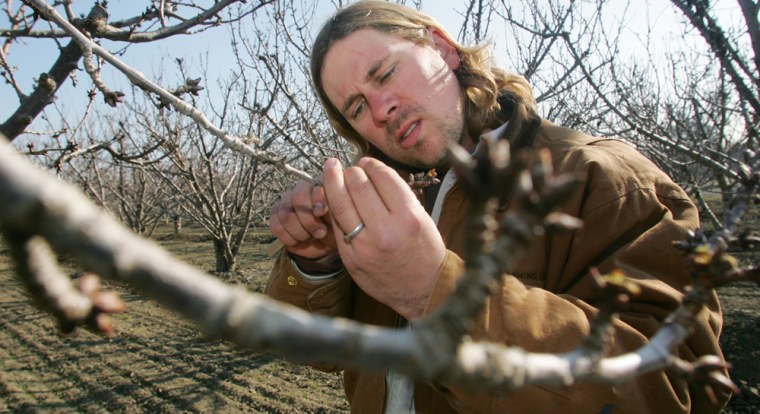It took just five nights of bitter cold to ruin nearly $1 billion in citrus and other produce, but some crops thrived in the frigid temperatures.
Peaches, cherries, apples and grapes are maturing nicely thanks to the ongoing chill, which helps trees and vines bloom properly to produce quality fruit.
And citrus growers who didn’t suffer a total loss might have a better year for their remaining harvestable fruit, state Agriculture Secretary A.G. Kawamura said Friday.
“In a short market, if you’re the only one who has a crop that looks good you’ll be at the top of the heap,” Kawamura said. “For stone fruit and the grape industry certainly a good solid chill on these plants is a good thing.”
The freeze hit a broader geographic region and a wider array of crops than were damaged in 1998 citrus freeze, Kawamura said. Strawberries, leafy greens, cabbage, celery, onions and the nursery industry have all been affected by the freeze, which could also keep avocado trees from blooming and cause problems for coastal lettuce.
While Gov. Arnold Schwarzenegger has asked for federal disaster aid, U.S. Sen. Barbara Boxer said Friday she was considering introducing legislation to award crop disaster assistance and worker assistance to those harmed by the cold snap. Schwarzenegger declared a state of emergency in six new counties Friday, bringing the total to 16 that are receiving emergency aid for the freeze.
As the worst crop freeze in a decade appeared to be on its way out Friday, some crops not only escaped damage, but benefited from the chill.
“Any cold weather that we get is welcome,” said John Warmerdam, who farms 1,300 acres of peaches, plums, nectarines, cherries and grapes outside Hanford. “When you’re talking to any citrus grower you do so with a bit of sympathy because you can relate to the position they’re in. It’s just a matter of time until Mother Nature gives you a bad hand.”
After five consecutive nights in which the mercury dropped below 28 degrees — a critical temperature for citrus — the National Weather Service predicted warmer temperatures in the San Joaquin Valley over the weekend.
In addition to crops that will benefit from the chill, growers in neighboring states may also see their fortunes rise.
Grocers in Washington have been replacing oranges and tangerines with apples and pears in advertising. Pacific Northwest apple packers say sales have been growing, and one industry official predicted apple prices at supermarkets could rise by as much as five cents a pound.
“The calls really felt good for the apple and pear industry,” said Rick Plath, president of Washington Fruit & Produce Co. in Yakima, Wash. “Not to wish anything bad for the citrus industry, but it was a causal relationship between the cold weather in California and increased interest in Northwest fruits.”
